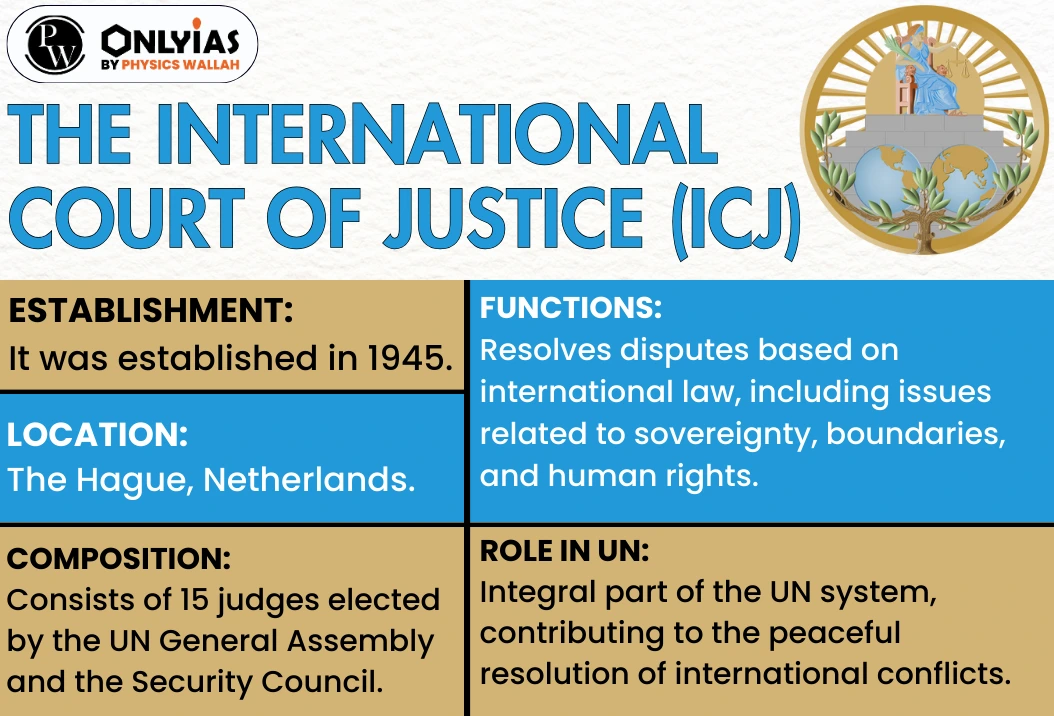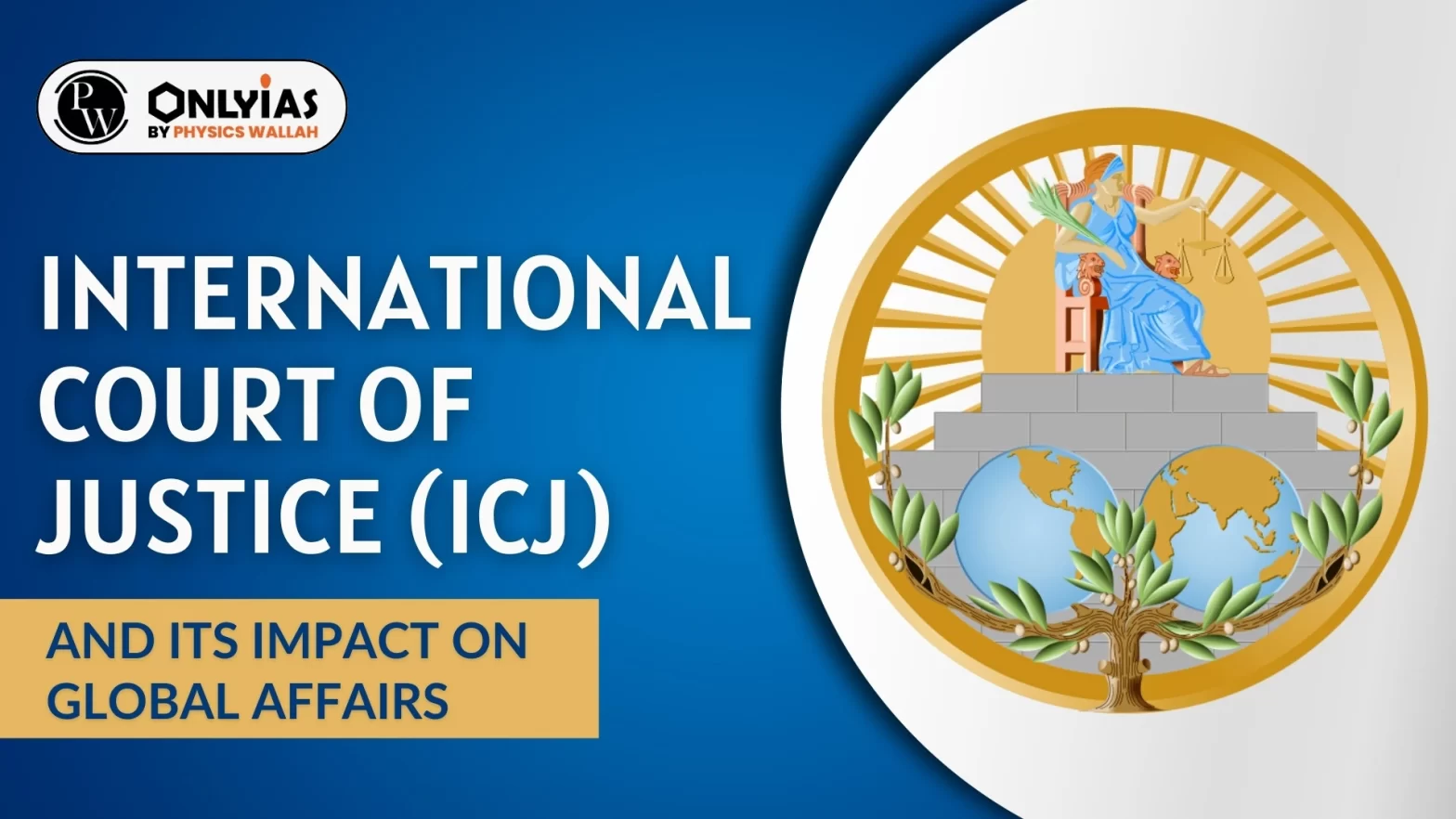Context:
This editorial is based on the news “International Court of Justice | Justice without power ” which was published in The Hindu. The International Court of Justice (ICJ), the UN’s highest judicial body, is in spotlight due to hearing of a case instituted by South Africa, accusing Israel of committing genocide in Gaza.
- Over 23,000 Palestinians have been killed and 90% of Gaza’s population displaced in Israel’s offensive that started after the attack by Hamas, but Israel has rejected the genocide allegations.
| Relevancy for Prelims: International Court of Justice (ICJ) United Nations, and UNGA’s 78th Session.
Relevancy for Mains: International Court of Justice (ICJ)- Significance, Challenges and Way Forward. |
About the International Court of Justice (ICJ)
- Establishment: In June 1945 by the Charter of the UN, following decades of international conflicts in the form of two World Wars.
- Location: Seated at the Peace Palace in The Hague, the Netherlands
- Judges: The International Court of Justice has a total strength of 15 judges who are appointed for nine-year terms through separate, simultaneous elections at the United Nations General Assembly (UNGA) and the United Nations Security Council (UNSC).
- However, ‘ad-hoc judges’ are sometimes appointed in cases that require specialised knowledge about the concerned dispute.
- Jurisdictional Powers:
- Advisory Jurisdiction: It relates to the jurisdiction of the court in providing legal opinions on matters referred to it by the organs and specialized agencies of the UN.
- Jurisdiction in Contentious Cases: It involves settling disputes between countries and determining “state responsibility” for crimes committed in violation of international law.

Must Refer: UNSC Reforms For A New Era; What The World Thinks
Challenges With the Efficacy of the International Court of Justice (ICJ)
- No Enforcement Powers: The UN Charter authorizes the UNSC to enforce the court’s decisions. However, its compliance is often at the mercy of the power politics of the permanent members of the Security Council.
- Non-participation of Powerful Member States in its Proceedings: Example- In the proceedings instituted by Ukraine against Russia in 2022, the latter refused to advance submissions.
- Similarly, in the famous Nicaragua vs the U.S. case, the latter refused to submit to the court’s jurisdiction and enforce its subsequent ruling.
- Slow and Bureaucratic Procedure: It has also been a subject of criticism.
- Example- A 2019 case instituted by Gambia against Myanmar for its military crackdown on Rohingya refugees is still in trial.
- Two prior cases involving the Genocide Convention also took over a decade to resolve — Croatia vs Serbia and Bosnia and Herzegovina vs Serbia and Montenegro.
Relevance of the International Court of Justice (ICJ)
- Expanding Jurisdiction: Over the years, states have approached the International Court of Justice for diverse international law matters like human rights, environmental issues and dispute settlement.
- Example: Romania recently advanced a declaration in support of the court’s jurisdiction in which over 30 states have joined so far.
- Successful Reparations: Major rulings on reparations have also been adhered to by the concerned parties.
- Example: In its 2022 judgment in the case of the Democratic Republic of the Congo (DRC) vs Uganda, the court ordered Uganda to pay a total of $325 million to the DRC. Subsequently, Uganda complied with the ruling.
- Advisory Role: The Court has also played an enormous role in advancing peaceful solutions to conflicts and supporting diplomatic efforts.
- Example: The ‘Legality of Use of Nuclear Weapons’ in 1996, and ‘Legal Consequences of the Construction of a Wall in the Occupied Palestinian Territory’ in 2004.
Conclusion
The International Court of Justice (ICJ) has been able to carve out a niche position in international judicial adjudication despite the emergence of new courts and tribunals. However, the concerns have also raised about the potential fragmentation of international law where various judicial bodies impart contradictory rulings.
- Now it’s time for a decentralized judiciary that could foster more judicial independence as international law has been the last resort in safeguarding the interests of the World.
![]() 16 Jan 2024
16 Jan 2024

